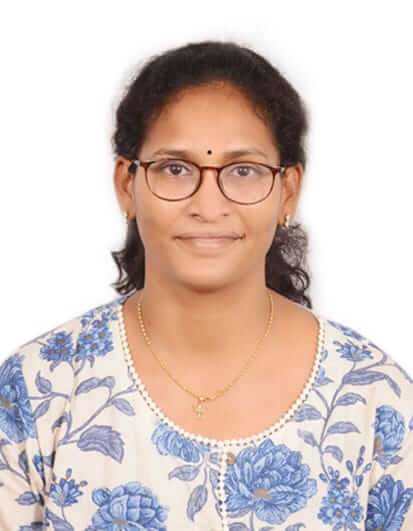Dr. Neelima Chitturi is a distinguished bioinformatics expert with over 15 years of experience in transcriptomics, genomics, and computational biology. A Ph.D. holder from IIIT-Hyderabad and IBAB-Bangalore, she specializes in identifying genetic variants, analyzing microbiome data, and developing bioinformatics pipelines. As the founder of Bruhaspathi Institute of Biosciences (BIB), she is passionate about simplifying complex bioinformatics concepts and empowering students with practical, real-world skills. Her expertise spans clinical diagnostics, pharmacogenomics, and cancer genomics, making her a sought-after educator and researcher in the field.
Home
/
Courses
/
Comprehensive Bioinformatics Training Program
/
Comprehensive Bioinformatics Training Program
Outcome: Participants will gain hands-on experience in bioinformatics, covering genomics, sequence analysis, and computational biology.
Total Duration: 6 months (24 weeks)
Weekly Commitment: ~6 hours per week

What You will Learn
Module 1: Introduction to Bioinformatics (4 weeks)
Kickstart your bioinformatics journey by understanding core concepts, tools, and databases essential for biological data analysis.
What You Will Learn
- Fundamentals of bioinformatics and its applications.
- Introduction to Linux and command-line tools.
- Exploring biological databases (NCBI, Ensembl, UniProt).
- Retrieving and analyzing sequence data.
Tools Covered
- Linux/Unix
- NCBI, Ensembl, UniProt
- BLAST, FASTA
Module 2: Programming for Bioinformatics - Python (4 weeks)
Develop Python programming skills to analyze and visualize biological data effectively.
What You Will Learn
- Basics of Python programming.
- Handling biological data with Python.
- Utilizing the BioPython library for sequence analysis.
- Data visualization and statistical techniques.
Tools Covered
- Python
- BioPython
- pandas, NumPy
- Matplotlib, Seaborn
Module 3: Programming for Bioinformatics - R (4 weeks)
Gain expertise in R programming for bioinformatics applications, including data analysis and machine learning.
What You Will Learn
- Introduction to R programming for bioinformatics.
- Managing and analyzing biological datasets.
- Data visualization with ggplot2.
- Applying statistical analysis and machine learning.
Tools Covered
- R
- ggplot2
- Bioconductor
- DESeq2, edgeR
Module 4: Genomics and Next-Generation Sequencing (4 weeks)
Learn genomics techniques and master next-generation sequencing (NGS) data analysis.
What You Will Learn
- Understanding NGS technology and workflows.
- Quality control of sequencing data (FASTQC, Trimmomatic).
- Read alignment using (BWA, Bowtie2).
- Variant calling and annotation (GATK, SnpEff).
- Genome assembly and annotation techniques.
Tools Covered
- FASTQC, Trimmomatic
- BWA, Bowtie2
- GATK, SnpEff
- SAMtools, BEDtools
Module 5: Structural and Functional Bioinformatics (4 weeks)
Explore protein structure prediction, molecular docking, and pathway analysis for functional insights.
What You Will Learn
- Protein structure prediction and modeling.
- Molecular docking and drug discovery applications.
- Functional annotation and pathway mapping.
- Systems biology and integrative analysis.
Tools Covered
- PyMOL, Chimera
- AutoDock, HADDOCK
- KEGG, Reactome
- STRING, Cytoscape
Module 6: Computational Biology and Omics Analysis (4 weeks)
Delve into advanced omics studies, including transcriptomics, metagenomics, and epigenomics.
What You Will Learn
- RNA-seq data analysis and expression profiling.
- Microbiome analysis and metagenomics techniques.
- Epigenomics and gene regulation insights.
- Integrative multi-omics analysis.
Tools Covered
- HISAT2, STAR
- featureCounts, HTSeq
- QIIME, MetaPhlAn
- ChIPseeker, DiffBind
Module 7: Capstone Project and Industry Readiness (4 weeks)
Apply your knowledge to a real-world bioinformatics project and prepare for industry applications.
What You Will Learn
- Hands-on capstone project using real biological datasets.
- Workflow automation and large-scale data handling.
- Presenting bioinformatics findings effectively.
- Career guidance and industry trends in bioinformatics.
Who Should Enroll
Beginners to intermediate learners in bioinformatics, biology, and data science.

